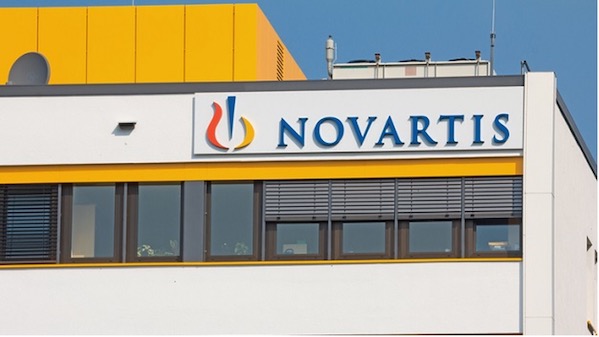Novartis Shareholders Approve Sandoz Spin-Off as Product Plans Increase
September 19, 2023
Source: drugdu
 296
296
By Connor Lynch
 Pictured: Novartis office in Germany/iStock, TBE
Pictured: Novartis office in Germany/iStock, TBE
Sandoz is finally nearing the end of its path towards independence. Over a year after Novartis finalized its plans to spin off its generics and biosimilars division, the Swiss pharma’s shareholders on Friday approved the move, which is expected to take effect on or around Oct. 4.
The Novartis board of directors also approved the move back in July, paving the way for it to go ahead once the shareholders had signed off.
The deal will see Novartis shareholders receive one Sandoz share for every five Novartis shares they hold, and the same ratio of American Depository Receipts (ADRs).
Board of Directors Chair Joerg Reinhardt said in a statement that with “this step, both Sandoz and Novartis will be able to optimize management focus, allocate capital on business priorities, and be in a better position to create sustainable shareholder value in the future.”
Sandoz has already begun laying the groundwork for its coming independence. CEO Richard Saynor told Reuters the company is already planning to launch at least five additional biological drugs in addition to its existing suite of 25. The company is already the second-largest producer of biosimilars in the world after Pfizer, with Saynor saying that he fully plans on taking the top spot from the much-larger competitor.
Sandoz accounted for 11% of Novartis’s operating in profit in 2022, and the new company is likely to be worth between $11 billion and $13 billion. “When I joined (in 2019), there were less than eight biologics in the pipeline,” Saynor told Reuters. “Today, there’s 25. And that journey will continue. I’ll be happier when it’s over 30.”
Most recently, that included a development and commercialization contract signed with Samsung Bioepis to produce SB17, a biosimilar to Johnson & Johnson’s ustekinumab. The compound, marketed as Stelara and approved by the FDA in 2009, which is a monoclonal antibody for treating Crohn’s disease, ulcerative colitis, plaque psoriasis, and psoriatic arthritis. Patent protections for one of the molecules used in Stelara also expires on Sept. 25.
That deal gives Sandoz exclusive commercialization rights to the drug in the U.S., Canada, Switzerland, the U.K., and the European Economic Area, and “will further strengthen our immunology patient offering and means we now have five potential high-value upcoming biosimilar launches over the next few years,” Saynor said.
However, Sandoz isn’t the only company chomping at the bit to challenge Stelara’s supremacy. Amgen is due to bring its biosimilar to market by Jan. 1, 2025, and is the current frontrunning competitor ahead of Teva and Alvotech—which have a deadline of Feb. 1, 2025 to enter the market.
Read more on
- The first subject has been dosed in the Phase I clinical trial of Yuandong Bio’s EP-0210 monoclonal antibody injection. February 10, 2026
- Clinical trial of recombinant herpes zoster ZFA01 adjuvant vaccine (CHO cells) approved February 10, 2026
- Heyu Pharmaceuticals’ FGFR4 inhibitor ipagoglottinib has received Fast Track designation from the FDA for the treatment of advanced HCC patients with FGF19 overexpression who have been treated with ICIs and mTKIs. February 10, 2026
- Sanofi’s “Rilzabrutinib” has been recognized as a Breakthrough Therapy in the United States and an Orphan Drug in Japan, and has applied for marketing approval in China. February 10, 2026
- Domestically developed blockbuster ADC approved for new indication February 10, 2026
your submission has already been received.
OK
Subscribe
Please enter a valid Email address!
Submit
The most relevant industry news & insight will be sent to you every two weeks.



